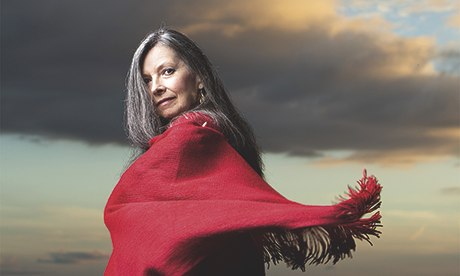
It wasn't my intention to walk out of my own life and vanish, especially when things were going so well. I was an ambitious 24-year-old folk singer and had just started work on my third album. The second had been a critical success and had really started to get me noticed.
A bad trip was the catalyst for unexpected change. I took LSD at a party, expecting the effects to be short-term, but ended up losing three or four days. I remember wandering across London, experiencing terrifying hallucinations, then being helped on to a plane with no clue where I was going. Touching down, I recognised Glasgow and my parents' stern faces. They'd never approved of me becoming a singer; perhaps this is what they'd always expected.
The hallucinations continued for weeks. I remember lying in bed at my parents' house, hearing the phone ring, but if any of the calls were for me, they were never passed on. My address book hadn't made the journey with me, and I didn't have the money to travel. My friends were all down south and though I desperately wanted to see them, I became completely cut off. Over 18 months I began to recover, though when I tried to sing, all that emerged was a strangled croak.
My life changed again when I met my partner during a chance visit to a local bookshop. I took one look at the owner, Gordon, and knew we were going to be together. My parents didn't approve as he was older than me and not a company director. I knew I couldn't win them over, so we decided to move away.
Our life together wasn't easy. Gordon was an academic, but as the recession of the early 80s took hold, jobs became thin on the ground. We found it increasingly difficult to pay the rent and in the end decided to jack it all in and live in a tent. We planned to do it for only a few months but before long we were carrying everything we owned on our backs across Scotland, setting up camp in woodlands. Winters could be particularly punishing. Some days it got so cold, I genuinely thought we were going to die. We kept each other's spirits up, and when you're living hand to mouth, day to day, you exist in the moment. Over the years we moved between long stints in the tent and various flats and homeless shelters, claiming what benefits we could. Occasionally Gordon would manage to sell an academic essay or I would sell a drawing. I missed my old life, but it seemed forever out of reach. My relationship with my family had always been difficult and I taught myself not to dwell on our separation.
Then, one day, as I was making lunch over the camping stove, Gordon said, "There's an interesting story in the paper here; you should read it." What I saw stunned me – a photo of myself in my 20s, back when I was a folk singer. The article talked about how I had disappeared, that no one knew if I was alive or dead, and that my records had been rereleased more than 30 years after I'd made them. It felt like reading my own obituary. If a search had ever been made for me, I'd not been aware of it. I also found out that my parents had died; I'd tried to prepare myself for that possibility, but it was still a shock.
What astonished me, when I visited a library and was introduced to the internet, was the intrigue I'd left behind, even among people I'd never met. I found it bewildering that people still listened to my music and had spent time concocting theories about what had become of me: that I was writing children's books under an assumed name, or had become a religious recluse.
By 2008, we'd moved into a flat, but Gordon had become ill. I began reconnecting with friends I hadn't seen for decades. There was no anger, no recriminations; within minutes, I'd find myself talking to people as if I'd never been away. Having them back in my life was a tremendous comfort when I was nursing Gordon.
Before he died last year, Gordon encouraged me to return to my music. I've made a third record, 40 years after the second, and am performing again. I don't feel as if I've wasted time. From my perspective, I was never really lost: I was just living a very different kind of life.
• As told to Chris Broughton
Do you have an experience to share? Email experience@theguardian.com

